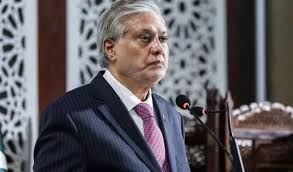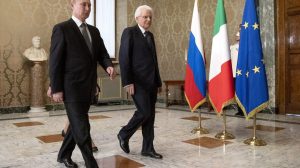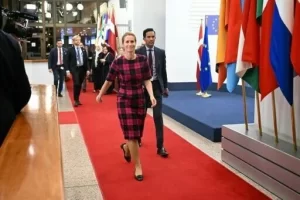Dar denounces US-Israel strikes on Iran at SCO forum

Tianjin: Foreign Minister Ishaq Dar on Tuesday strongly condemned attacks by Israel and the United States on Iran, calling them “unacceptable” during the Shanghai Cooperation Organisation (SCO) Council of Foreign Ministers meeting held in Tianjin, China.
The 10-member SCO includes China, Russia, India, Iran and Pakistan. The ministerial gathering is a prelude to the annual leaders’ summit scheduled for this autumn in Tianjin.
Dar criticised Israel’s 13th June bombing campaign, which struck military, nuclear and residential targets in Iran, killing nuclear scientists, civilians and senior commanders. He also denounced the US strikes on Iranian nuclear sites on 22nd June, calling both sets of attacks “unjustified and illegitimate”.
“We have strongly condemned the unjustified and illegitimate aggression by Israel against the Islamic Republic of Iran and the US strikes on its nuclear facilities,” Dar said. “Such illegal actions directed against SCO member states are unacceptable.”
Continuing his remarks, Dar condemned Israel’s actions in Gaza: “Israel has shown a reckless disregard for international norms and humanity through its relentless and disproportionate use of force in Gaza, resulting in the death of tens of thousands of civilians causing the worst humanitarian crisis in Gaza.”
He reiterated support for the two-state solution: “The only viable remedy to the Palestine dispute is the realisation of a two-state solution… with Al Quds as its capital.”
Dar raised concerns over recent tensions in South Asia, particularly the fallout from the April 22 terrorist attack in Pahalgam, India-occupied Kashmir.
“The attribution of the Pahalgam Attack to Pakistan – without a credible investigation or verifiable evidence – brought the two nuclear-armed states to the brink of a major conflict,” he said.
He highlighted Pakistan’s restraint in response to “legal transgressions, rhetorical belligerence, and strategic recklessness”.
Dar stressed that disputes must be settled through peaceful means. “We believe that disputes and differences are resolved through dialogue and diplomacy, instead of conflict and coercion.”
“Strict adherence to bilateral agreements would be equally important,” Dar noted. “The peaceful settlement of longstanding unresolved disputes is imperative for enduring peace.”
On Afghanistan, Dar said peace and stability there was essential for SCO’s collective future, suggesting that reviving the SCO-Afghanistan Contact Group could support pragmatic cooperation.
“Terrorism is the common concern of humanity that threatens global security. All forms of terrorism, including state terrorism, are condemnable. We must shun the use of terrorism for political purposes.”
Dar reaffirmed Pakistan’s support for the Belt and Road Initiative (BRI), citing the China-Pakistan Economic Corridor (CPEC) as a key regional development initiative.
“We need to take concrete steps within existing SCO mechanisms for trade and development and promote the use of national currencies for mutual settlement… We support the proposal to create a SCO alternative development funding mechanism,” he said.
Pakistan, as the permanent chair of the SCO’s Special Working Group on poverty, remains committed to cooperative efforts to combat poverty. He also urged members to jointly address climate change, calling it an “existential threat”.
“SCO has emerged as a stabilising force. Its inclusive approach… offers a compelling alternative to aggression, confrontation and zero-sum rivalries,” Dar said.
“In our pursuit of peace and security, we believe in non-aggression, non-interference in internal affairs, non-use of force or threat of its use in international relations, as well as seeking no unilateral military superiority in the region.”
Following the meeting, Dar posted on X: “We reaffirmed our shared commitment to multilateralism, mutual respect and regional stability. The Shanghai Spirit continues to guide us towards dialogue, mutual trust and the pursuit of a more just and inclusive international order.”





